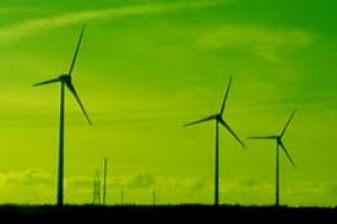Wednesday, 25/02/2026 | 00:20 GMT+7
The European Commission has proposed a new 30 % energy savings target for 2030 as part of its new vision on energy efficiency beyond 2020 laid out in a recent Communication. The aim is to move us towards a clear policy framework for energy efficiency that will provide predictability for investors and stimulate research and development in the area of energy efficiency and low-carbon technologies.
At the moment, the EU is on track to achieve energy savings of 18-19 % by 2020. Although we’re currently below the 20 % target, we are already benefitting from the drive towards greater energy efficiency. For instance, following the introduction of efficiency requirements in building codes, new buildings consume half as much energy today as they did in the 1980s. Meanwhile more efficient appliances are expected to save consumers EUR 100 billion annually on their energy bills by 2020. Member States have also committed to rolling out close to 200 smart meters for electricity and 45 million for gas by 2020, leading to greater savings for consumers.

The existing EU energy efficiency framework has already proven to be a driver of innovation and economic growth for European businesses. Energy efficiency is spurring competitiveness by creating markets for efficient, high value-added appliances and decentralised energy management technologies.
According to the Commission, our energy savings towards 2020 are being achieved thanks to new EU legislation, for example the Energy Performance of Buildings Directive (EPBD) and product regulations, and increased financing through funding programmes like Horizon 2020. However, we now need a framework to take us past 2020.
The proposed target of 30 % aims to build on the achievements already reached: The Commission estimates that reaching it will require additional investments in energy efficiency of EUR 89 billion annually. These will have to be primarily funded by private investment, however the EU financial instruments will help leverage this private finance. For example, in the period 2014-2020, it is proposed that some EUR 2 billion will be dedicated to this area, particularly through the energy efficiency focus of the Horizon 2020 societal challenge on 'Secure, Clean and Efficient Energy'.
The Commission expects that projected level of increased energy efficiency will, among other things, lower energy bills by EUR 53 billion annually by 2030. It will also increase the security of energy supply and create local jobs and spur the competitiveness of EU industry through investment in more efficient appliances, cars, and building refurbishment instead of energy imports.
Günther Oettinger, Commissioner for Energy, noted last week, ‘Our proposal is the basis to drive the EU towards increased security of supply, innovation and sustainability, all in an affordable way…The energy efficiency strategy will complete the 2030 framework on energy and climate…Our aim is to give the right signal to the market and encourage further investments in energy saving technologies to the benefit of businesses, consumers and the environment.’
Balkans.com








 Consultation on the methodology for developing and updating energy consumption standards for four major industrial sectors
Consultation on the methodology for developing and updating energy consumption standards for four major industrial sectors
 Opening of the 2025 Energy-Efficient Equipment and Green Transition Exhibition Fair
Opening of the 2025 Energy-Efficient Equipment and Green Transition Exhibition Fair
 Energy-saving solutions and green transition promotion
Energy-saving solutions and green transition promotion
 The 9th VEPG Steering Committee Meeting: Strengthening Coordination for Viet Nam’s Just Energy Transition
The 9th VEPG Steering Committee Meeting: Strengthening Coordination for Viet Nam’s Just Energy Transition